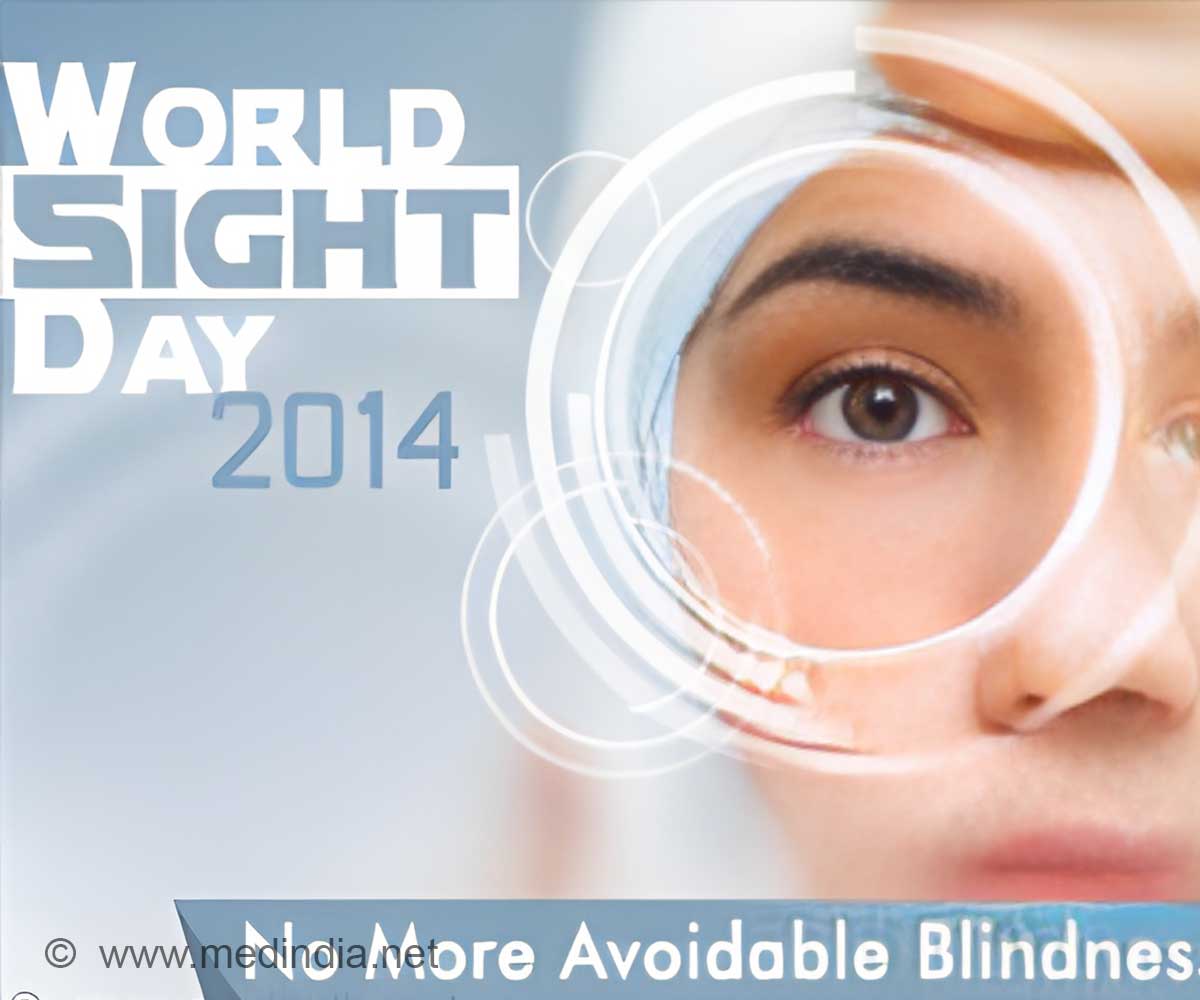The World Sight Day 2014 will be observed on the 9th of October with the theme: No More Avoidable Blindness.

• Cataract: Cataract results due to clouding of the lens in the eye. It usually occurs at an older age. Though not much can be done to prevent it, cataract can be easily treated surgically by replacing the lens with an artificial one. This surgery has now become a routine procedure with very few complications.
• Vitamin A deficiency: Vitamin A deficiency affects the eyes initially causing night blindness and complete blindness in the later stages. Adequate supplementation of vitamin A can help to avoid this condition.
• Glaucoma: Glaucoma is a condition that results in an increase in pressure within the eyeball. If left untreated, it can cause blindness. Some people with glaucoma do not have any symptoms. Therefore, it is necessary to get the eye pressure checked during a routine eye checkup.
• Diabetes: Diabetes causes diabetic retinopathy which in turn causes visual problems. People with diabetes are also prone to other eye problems like cataract and glaucoma. Therefore, a diabetic patient should have a well-controlled sugar level with necessary medications. It is also important to get a regular eye checkup done to detect any eye damage early.
• Refractive errors: Refractive errors should be detected and treated early with regular eye examinations. Untreated errors may worsen with time with a resultant effect on vision.
Most of the above conditions can be easily prevented or treated, thereby preventing blindness. It is also important to mention here, the gift of sight that each of us can give to others after our death. The cornea can be used to treat people with corneal blindness. This will ensure that a part of us will live after our death!
References:
1. http://www.iapb.org/wsd14
2. http://www.who.int/blindness/causes/en/
Source-Medindia










